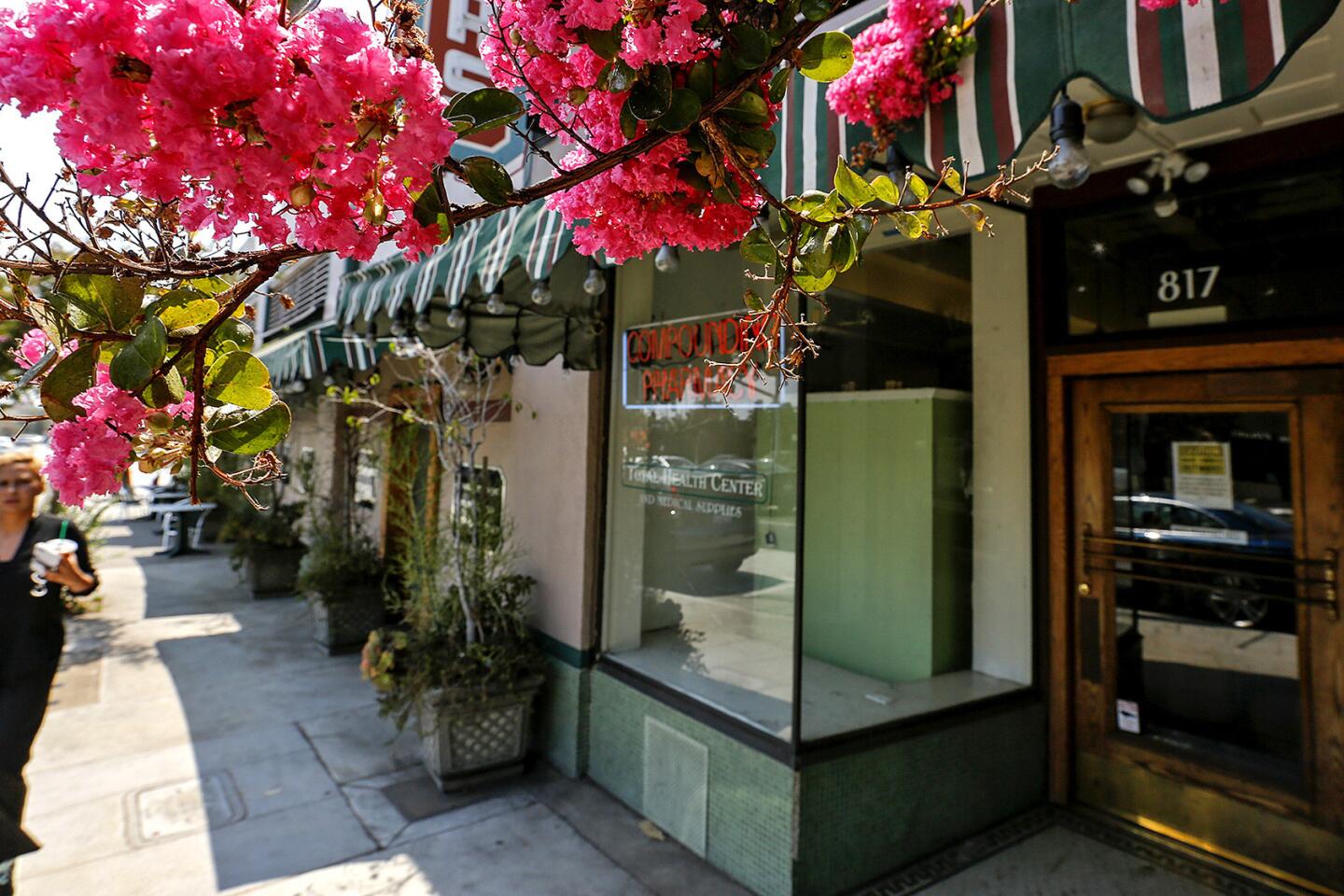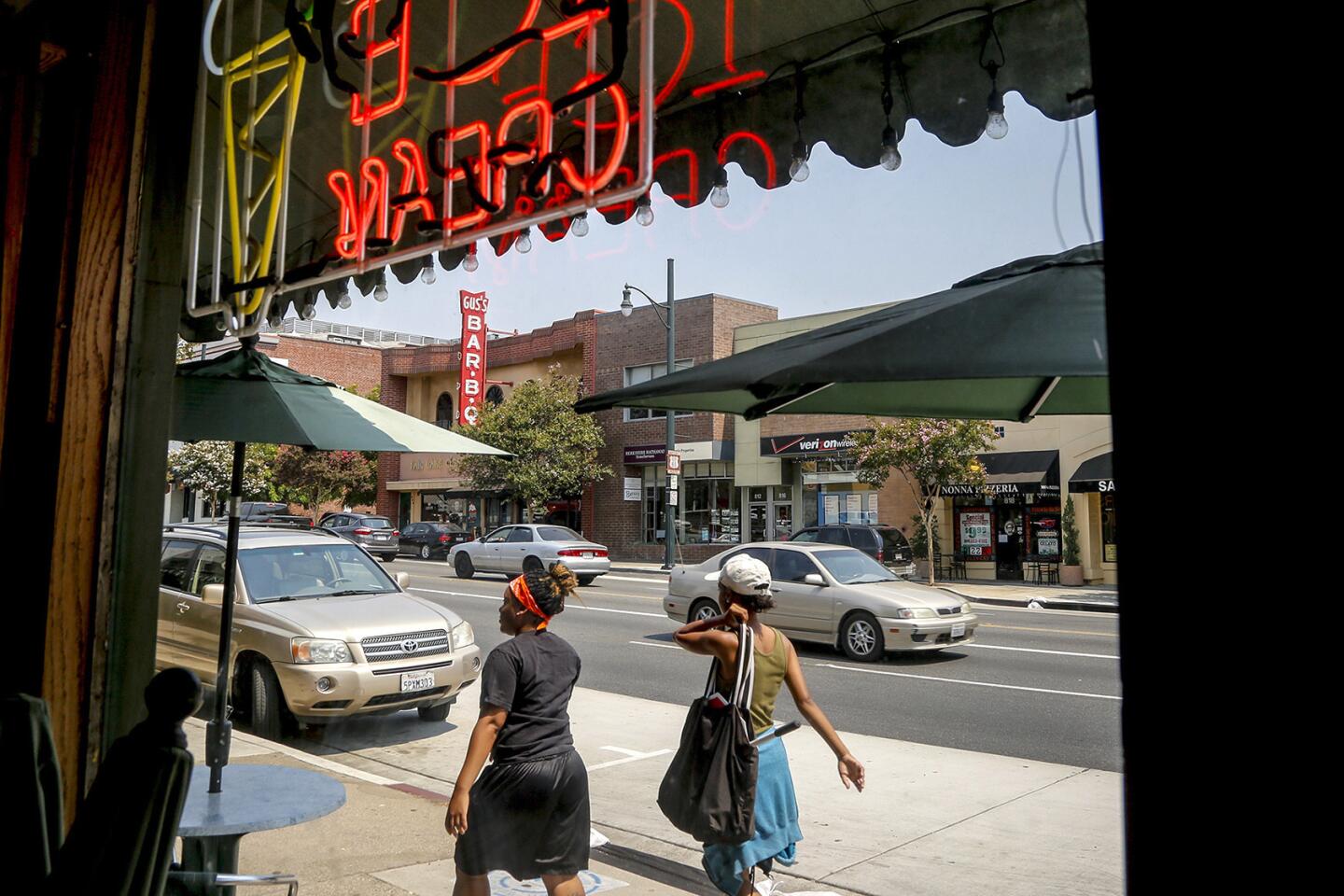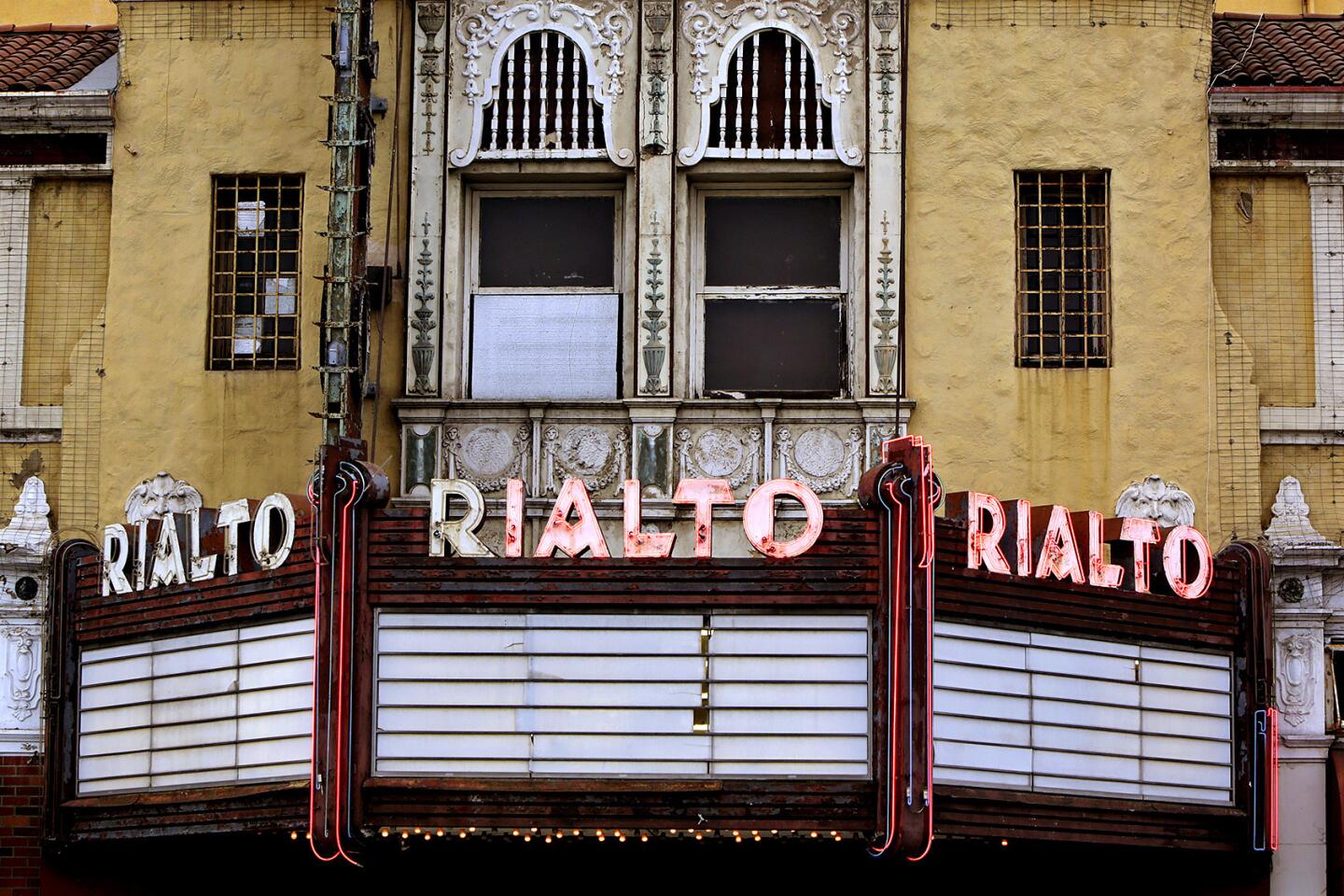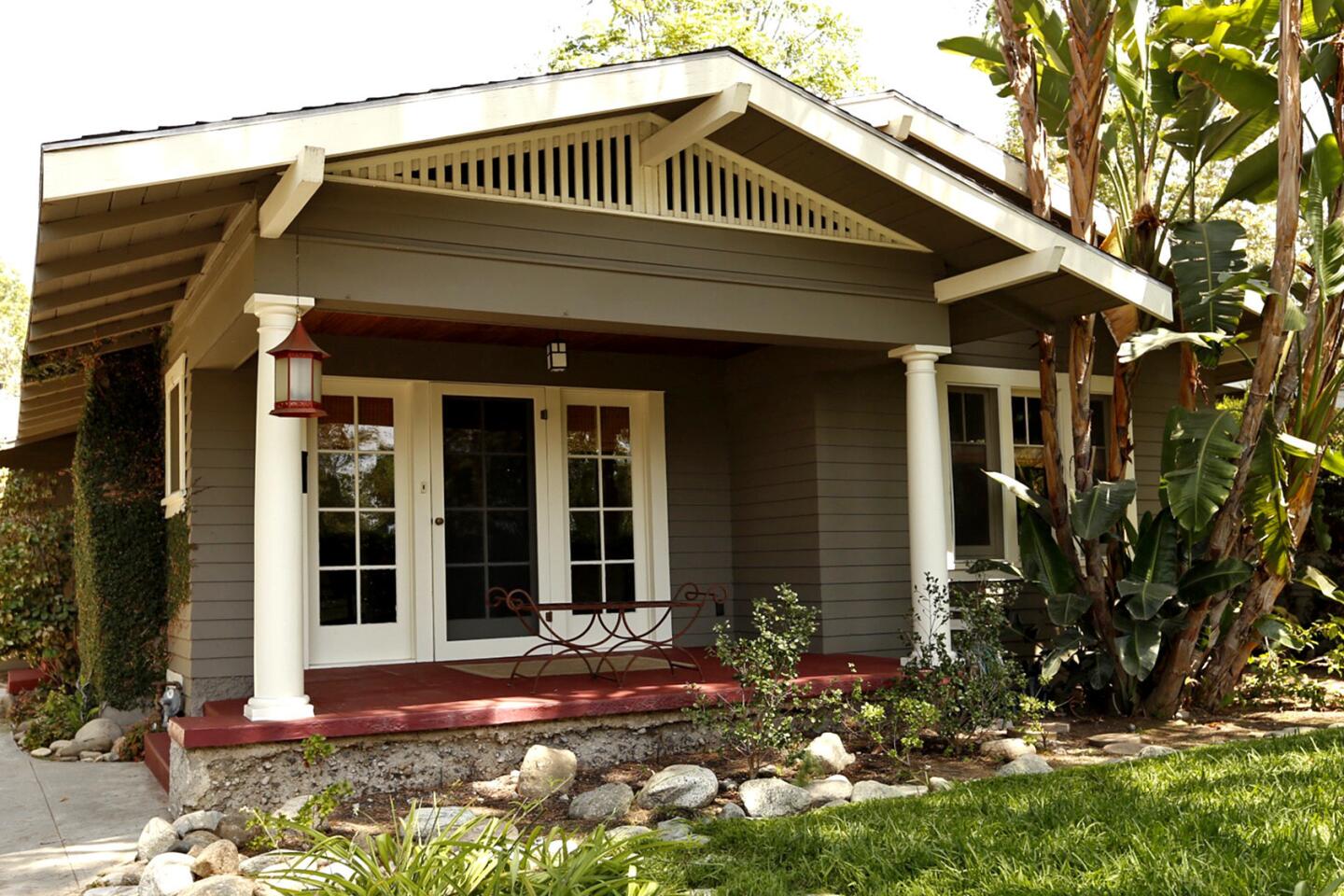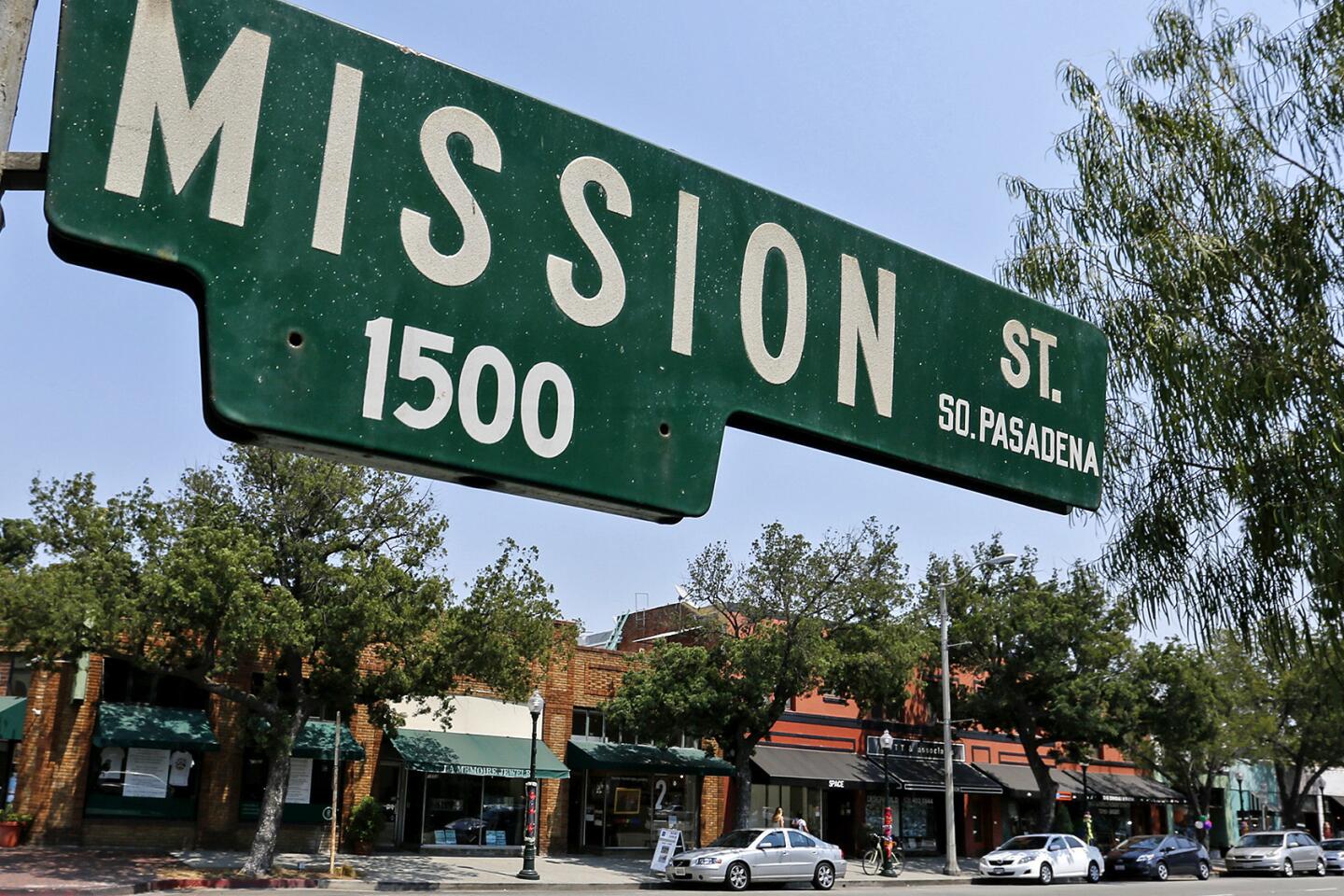Neighborhood Spotlight: South Pasadena flaunts its small-town charms
- Share via
When Hollywood looks for a location to stand in for small-town America, more often than not production companies load the grip trucks, hitch up the Star Waggons and head up the 110 to South Pasadena.
The city has so zealously protected its original charm and architectural character that it has become in many ways a time capsule of California living in the late 19th and early 20th centuries.
The desire to set itself apart first manifested itself in the late 1800s, when South Pasadenans voted to separate from Pasadena and incorporate as an independent town of 500 or so people.
Tourism and agriculture were the primary industries, as they were in communities up and down the Arroyo Seco. Visitors came by trainload to ride the big birds at the nationally renowned Cawston Ostrich Farm, or to winter at the L.A. area’s first grand resort, the luxurious Raymond Hotel.
Once all of those visitors clapped eyes on the beautiful Southern California countryside — not to mention the plentiful, relatively affordable land that stretched across the sparsely populated San Gabriel Valley — many of them decided to put down roots in South Pasadena.
The city’s wealth of Craftsman architecture and well-preserved commercial districts owe themselves to this real estate boomlet, which was in turn aided by the extension of the Pacific Electric Red Cars into town.
The insular character of South Pasadena took an unfortunate turn in the 1940s, when the city began to write into deeds restrictions against the ownership of property by anyone other than whites.
In the aftermath of Pearl Harbor, members of the thriving Japanese community in the city were evicted from their homes and sent to relocation camps and were not allowed to reclaim their property at war’s end. It was not until the 1960s that South Pasadena’s exclusionary housing regulations were finally discarded.
That ugliness is in the past. South Pasadena today is a highly diverse, affluent city. Though the Raymond Hotel has long since been demolished, and the cantankerous denizens of Cawston’s ostrich farm no longer roam the banks of the Arroyo Seco, the city weathered the loss of the tourist trade by embracing its rich legacy of classic residential and commercial architecture.
The Red Car’s replacement, the Metro Gold Line, runs through the heart of a revitalized, walkable downtown, just steps from neighborhoods that look much as they did almost 100 years ago.
And the city’s star shows no sign of dimming: The Rialto Theater featured prominently in “La La Land,” a movie that, appropriately enough, also makes a point of celebrating the past.
Neighborhood highlights
Schools: South Pasadena boasts one of the region’s most prestigious public school systems, with excellent options from kindergarten through high school.
Small Town, USA: Aside from a bit of strip-mall ugliness on Fair Oaks Avenue, South Pasadena is the picture of 20th century small-town life, complete with a soda fountain.
Craftsman dreamland: For lovers of the quintessentially American style, South Pasadena offers up homes from such noted designers as Greene and Greene and G. Laurence Stimson.
Neighborhood challenges
High demand, short supply: Homes in South Pasadena, a completely built-up city with strong preservation ordinances, are at a premium — and real estate prices reflect that.
Expert insight
Sotheby’s agent Lin Vlacich was born and raised in South Pasadena, a city she praised for being community-oriented, diverse and architecturally significant.
“What makes it great is it has been historically successful — it’s not an up-and-coming community,” she said.
As such, South Pasadena weathered the housing crash well and rebounded quickly afterward, she said.
Potential homeowners hoping to buy in South Pasadena “really, really need to get connected with a local agent,” she said. “Things get sold off-market.”
Market snapshot
In January, based on seven sales, the median sales price for single-family homes in the 91030 ZIP Code was $1.388 million, a 38.1% increase over the same month the previous year, according to CoreLogic.
Report card
Within the boundaries of South Pasadena is Marengo Elementary, which scored 957 out of 1,000 in the 2013 Academic Performance Index. Other bright spots include Monterey Hills Elementary and Arroyo Vista Elementary, which scored 933 and 927, respectively.
South Pasadena Middle had a score of 936, and South Pasadena Senior High scored 891.
MORE FROM HOT PROPERTY
Fryman Canyon home photographed by Julius Shulman seeks $4.85 million
Former Cal football Coach Sonny Dykes sells Bay Area home for $4.35 million
My Favorite Room: Travis Stork’s simple, peaceful living room is just what the doctor ordered
More to Read
Sign up for Essential California
The most important California stories and recommendations in your inbox every morning.
You may occasionally receive promotional content from the Los Angeles Times.
